Logo type: Sarah Coleman interprets Fendi's Peekaboo bag
The American artist warps and bends Fendi’s identity as she stages a brand takeover in Miami's Design District that includes furniture, bags and glow in the dark elements
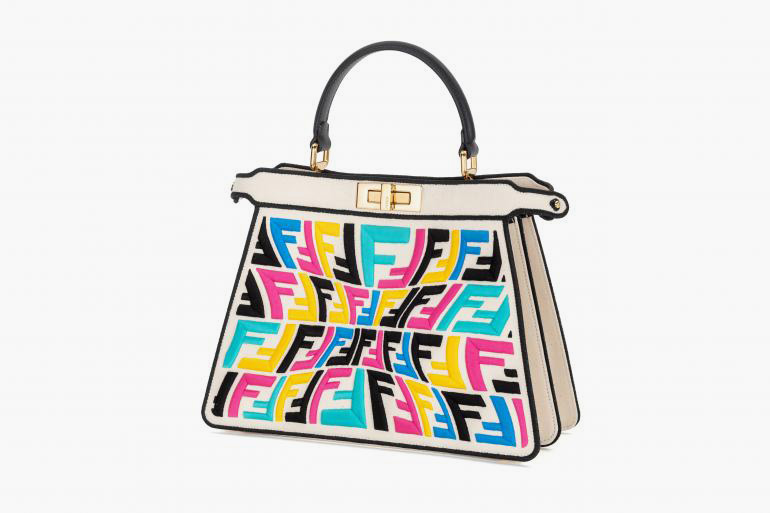
Receive our daily digest of inspiration, escapism and design stories from around the world direct to your inbox.
You are now subscribed
Your newsletter sign-up was successful
Want to add more newsletters?
When Fendi contacted Sarah Coleman asking her to create a project for Design Miami, the American artist recalls receiving a simple instruction: ‘be disruptive’. The brief got slightly more defined as the conversation progressed, but this initial approach gave Coleman a push in an encouraging direction.
Set to be unveiled in Miami in late November at Fendi’s Design District boutique, the artist’s intervention includes a yellow optical-print façade, bespoke furniture, a special edition of the brand’s ‘Peekaboo’ bag, and a distorted monogrammed print. At Design Miami, the Rome-based brand has traditionally presented collaborations with female designers, including Cristina Celestino, Chiara Andreatti, Sabine Marcelis, and Sarah Kueng and Lovis Caputo of Kueng Caputo. ‘Fendi has a strong womanhood heritage and ethos, so it’s always a pleasure to work with female talent,’ says Silvia Venturini Fendi, the brand’s creative director. ‘They provide the perfect complement to what we are creating with our fashion collections. I’m so proud of what we’ve achieved with these designers and artists over the years.’
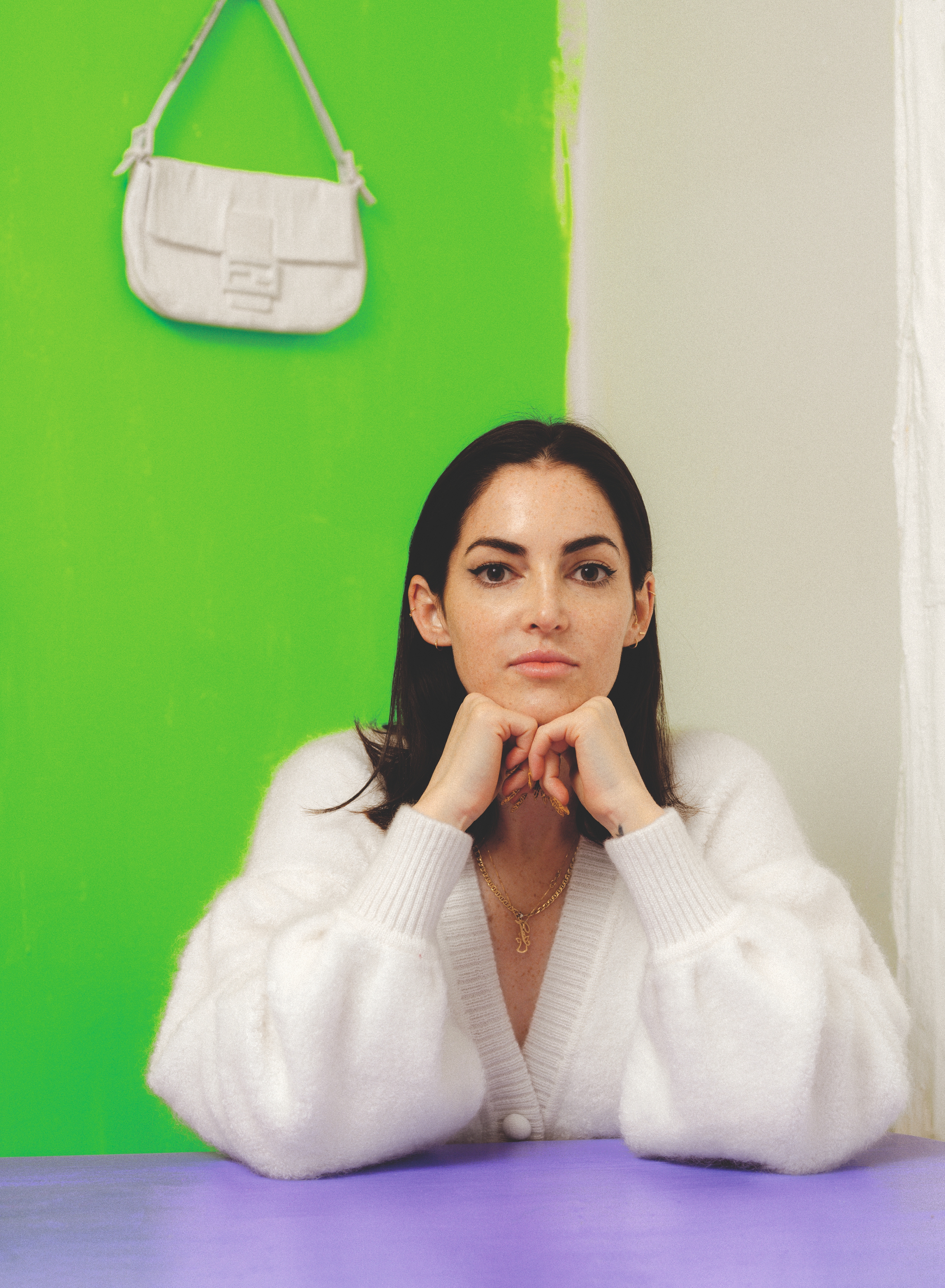
Artist Sarah Coleman photographed at her studio in New York.
Working at the cusp of art and design, Coleman repurposes monogrammed canvas (which she sources from old accessories) on chairs, lighters, coffee sleeves and, most recently and practically, hand-sanitiser bottles. She has covered light switches, a vacuum cleaner bag, household cleaning products and milk bottles, a pizza box and a barber chair in instantly recognisable fashion logos, from the likes of Louis Vuitton, Gucci and Fendi.
Coleman’s background includes working with Peter Marino on fashion boutiques worldwide, and later serving as the art director for the Mercer Hotel. Her fascination with logos started at a very early age: ‘You can mix them with anything, you can use a logo like black, as a neutral,’ she observes. ‘We are so familiar with and desensitised to all these logos, but they’ve lasted so long and they’ve been so successful, and they’re really genius prints.’
Although she has used material from a variety of fashion brands, the Fendi Zucca print is a recurring motif in her work, and a pattern she particularly admires for the spontaneity of its creation (it took Karl Lagerfeld three seconds to sketch back in the 1960s) and its longevity. ‘I think that the Zucca print is incredible. It can be used in so many different ways, it can be manipulated, it can be changed, but at its core, it’s always this really beautiful print.’
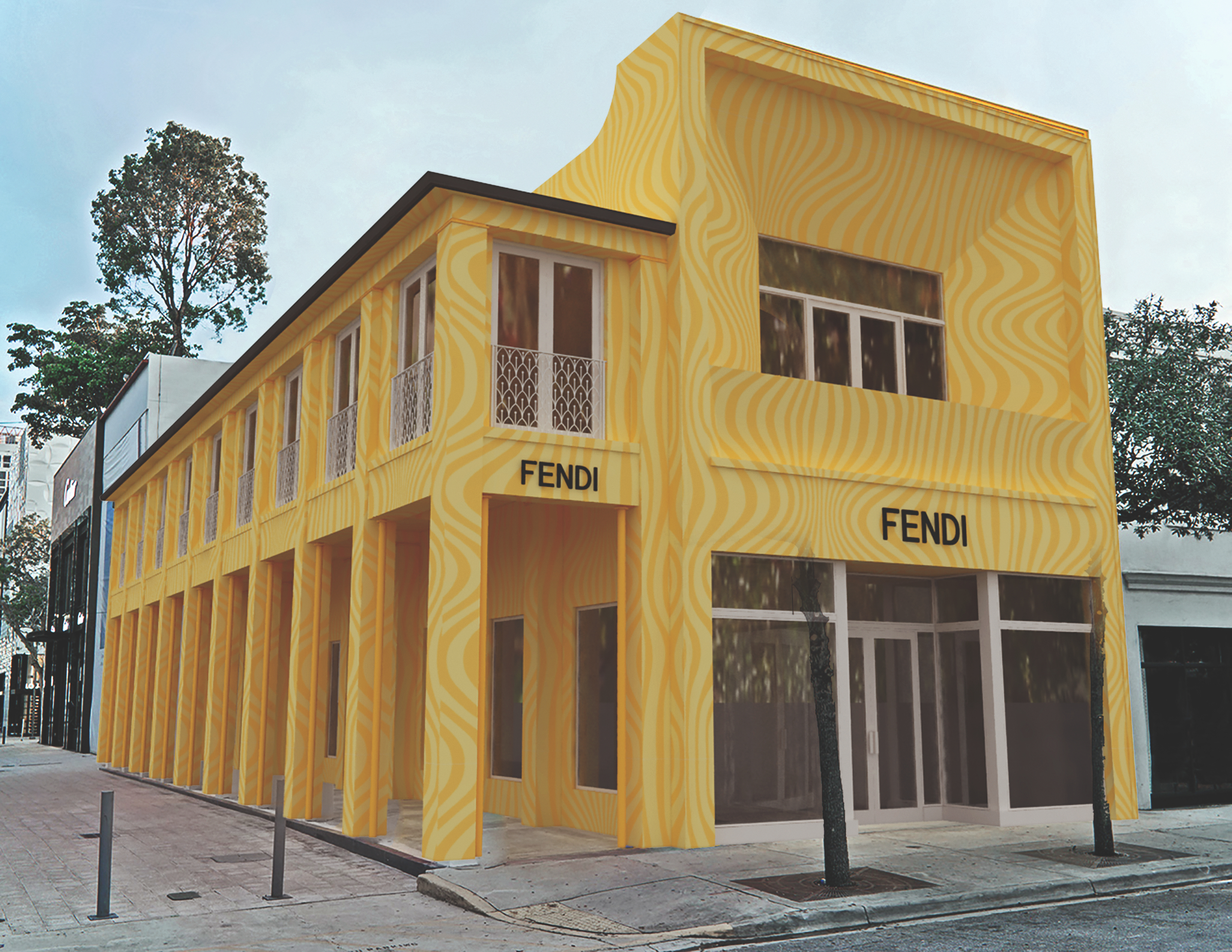
The artist used photo-editing software to create a warped design which she applied to the store’s exterior, pictured here
Coleman’s work is social media-friendly, so it’s no surprise that her career as an artist has developed over Instagram (after posting her first chair on the platform, she started a conversation with her followers, asking what else she could cover and building her body of work from there). Fendi’s first approach for this commission came via Instagram, too.
Social media, and related tools, have became a common thread running throughout this project. Having free rein to work on a well-known logo was a dream come true for Coleman, whose first step included manipulating the Zucca print. ‘I thought it would be really funny to use a photo-editing app different from Photoshop, so I used Facetune. I liked the idea of using this software that’s so commonly used by people to edit their face and body,’ she says. She experimented with different face-editing apps, resulting in a warped image of the repeated logo – a slightly 1970s-looking optical illusion – that she used across the project.
Design is a never-ending passion and a source of constant inspiration. It is a fascinating world, made of individuals with extraordinary personalities and personal styles that shun the conventional
Silvia Venturini Fendi
RELATED STORY
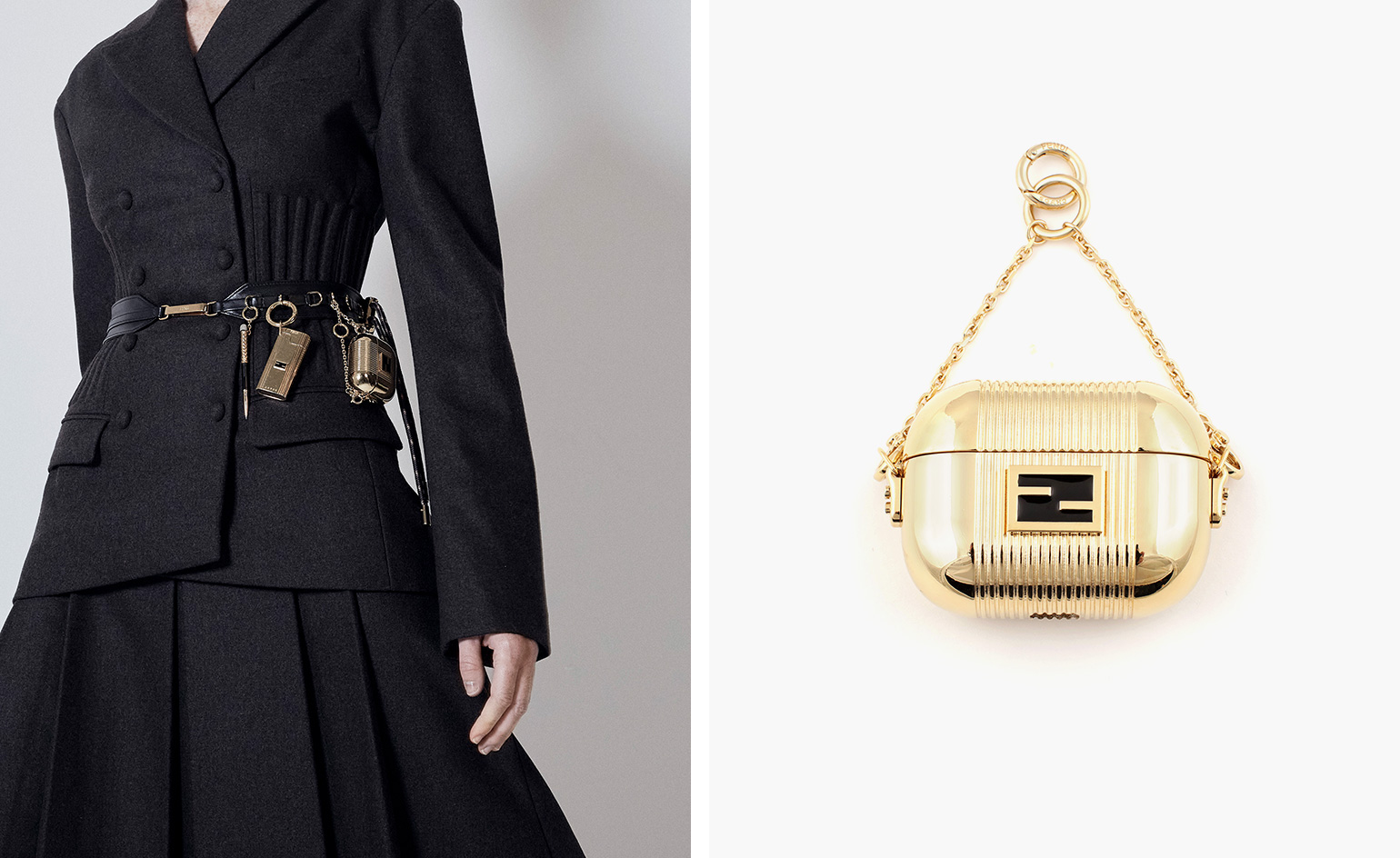
The installation in Miami will include established elements from Coleman’s body of work, as well as new pieces. Among them are an acrylic zigzag chair covered in vintage magazines printed with photos from Fendi’s archives and her warped Zucca logo print; and a vintage rattan chair that she painted yellow, with a cushion upholstered in a 1980s Fendi beach-bag canvas. She has also created a plaster rendition of the ‘Peekaboo’ bag, inspired by the Miami arts scene and her own childhood toys, as well as some mixed-media artworks, inspired by an imaginary, distant-future view of luxury objects, using layers of draped fabric, found objects and deconstructed Fendi bags.
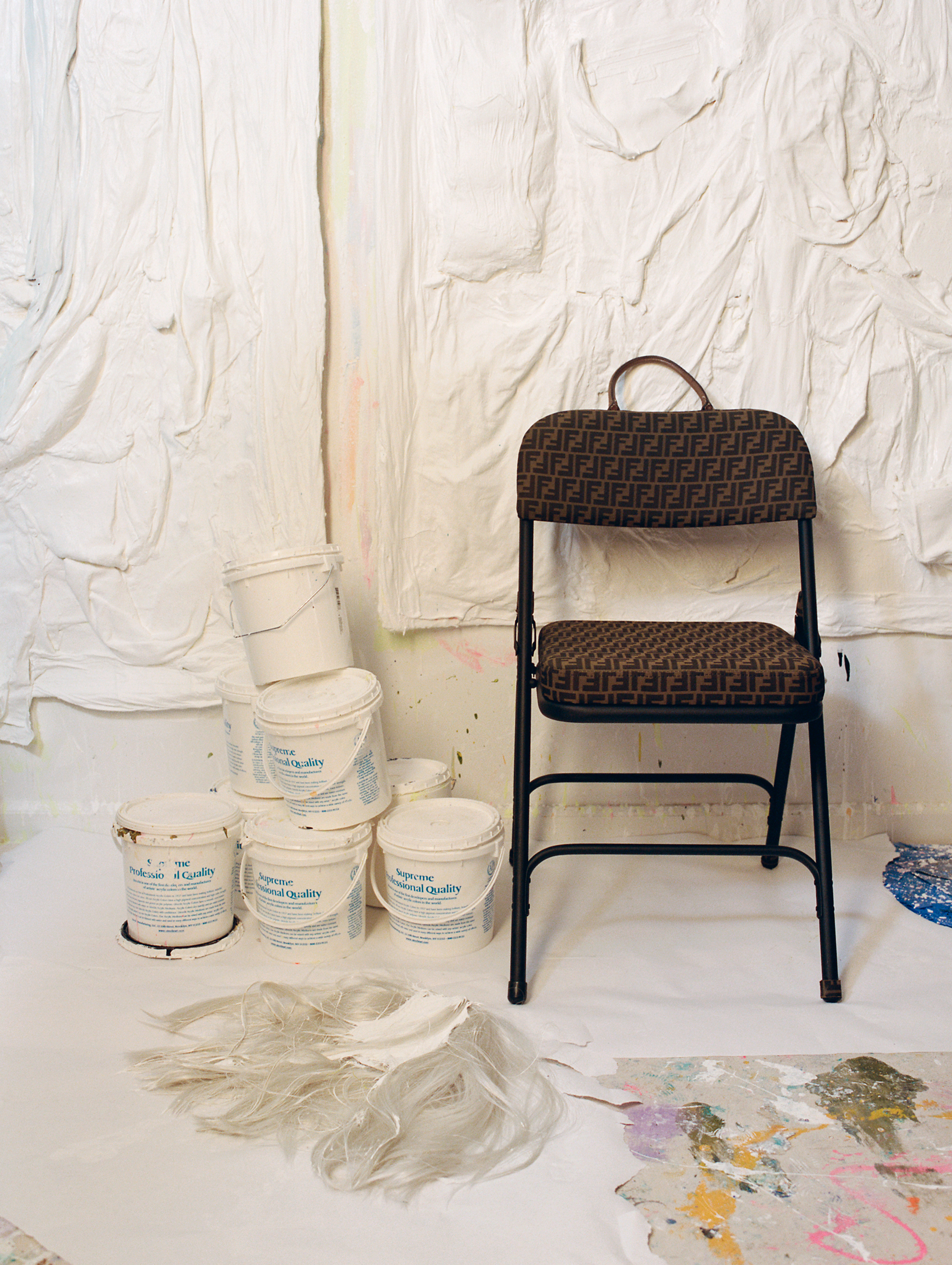
An example of Coleman’s repurposing of everyday furniture, here reupholstered in Fendi’s classic Zucca print
‘I adore Sarah’s sense of artistic fun and clever irony. We share this same humour and creativity so of course I was naturally drawn to her work,’ says Venturini Fendi. ‘Since the beginning, Fendi has been committed to redefining luxury through the development of new materials and techniques. It’s important to continuously explore a new expression of Fendi conceived from our heritage. Sarah had already been repurposing our iconic prints in her work, which invited the opportunity to see how this creativity can evolve by collaborating.’
Fendi is no stranger to allowing pop culture influences into its output, and this is one of the reasons Coleman was so attracted to the house and its logo. Not taking itself too seriously, Fendi has seen its logo appear on pasta and ice lollies; it has created a DIY needlepoint version of its signature Baguette bag and enlisted a diverse pool of designers, artists and creators to interpret the Fendi logo and identity. ‘Design is a never-ending passion and a source of constant inspiration. It is a fascinating world, made of individuals with extraordinary personalities and personal styles that shun the conventional. Our partnerships provide a stimulus to dare, to experiment, to free our creativity and push ourselves beyond established limits,’ says Venturini Fendi.
For Coleman, the creative exchange with Venturini Fendi was a crucial element for developing this project. ‘I feel a strong connection to her vision. She really understands my vision as an artist, and I think that she sees something that maybe hasn’t been totally played out yet [in my work],’ Coleman explains. ‘The fact that a huge brand is empowering a young artist made me feel even more pushed, and this is something that’s so needed, something that makes me really proud of my art.’
‘Sarah’s craft of repurposing has a great subversive humour,’ says Venturini Fendi. ‘It can redefine a luxury product. Her work embodies our spirit of taking handcraft in new directions, she can reimagine the conventional into the unexpected.’
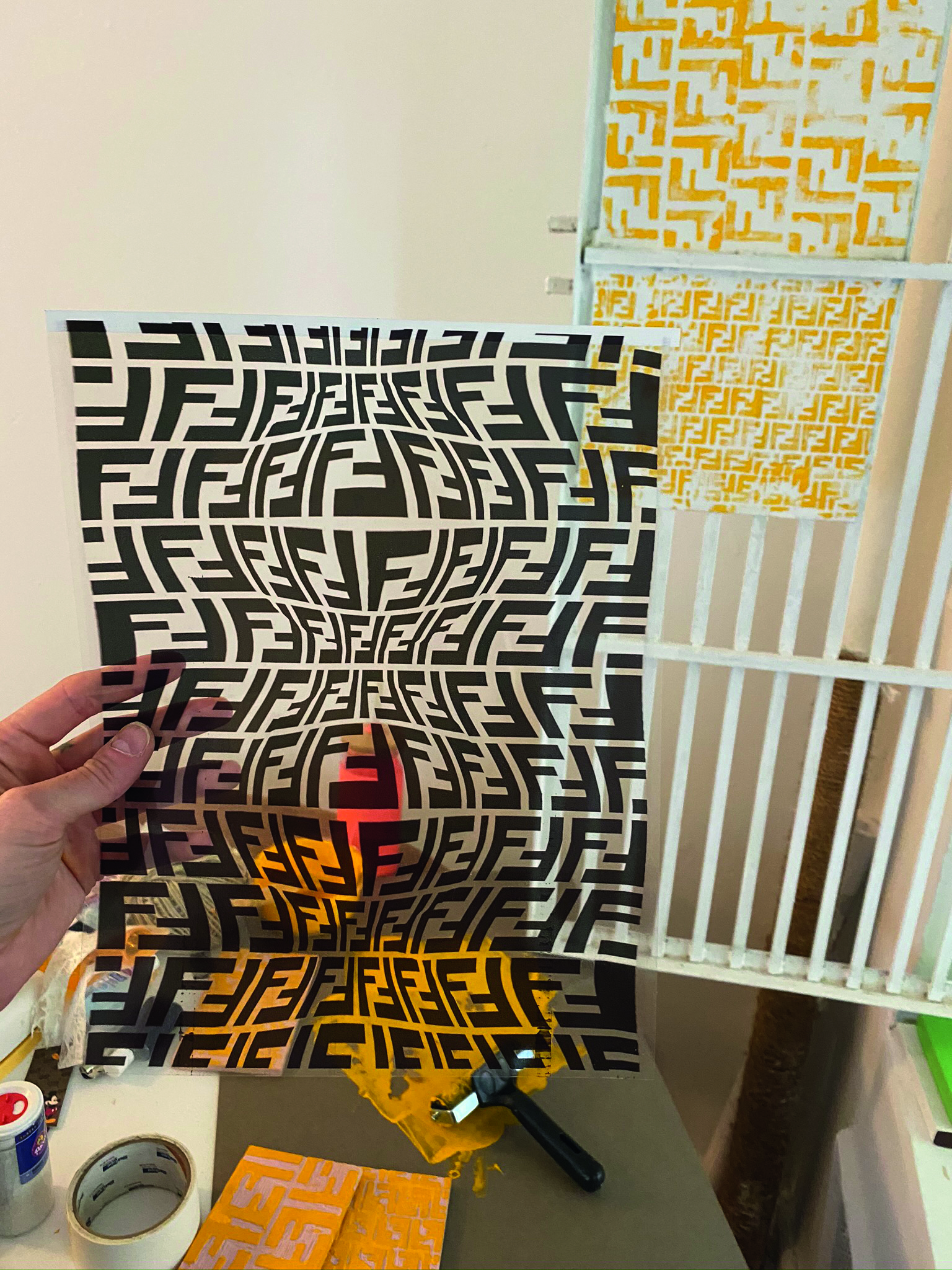
The distorted Zucca print created by Coleman putting Fendi’s logo through Facetune. ’I liked the idea of using this software that’s so commonly used by people to edit their face and body,’ she says
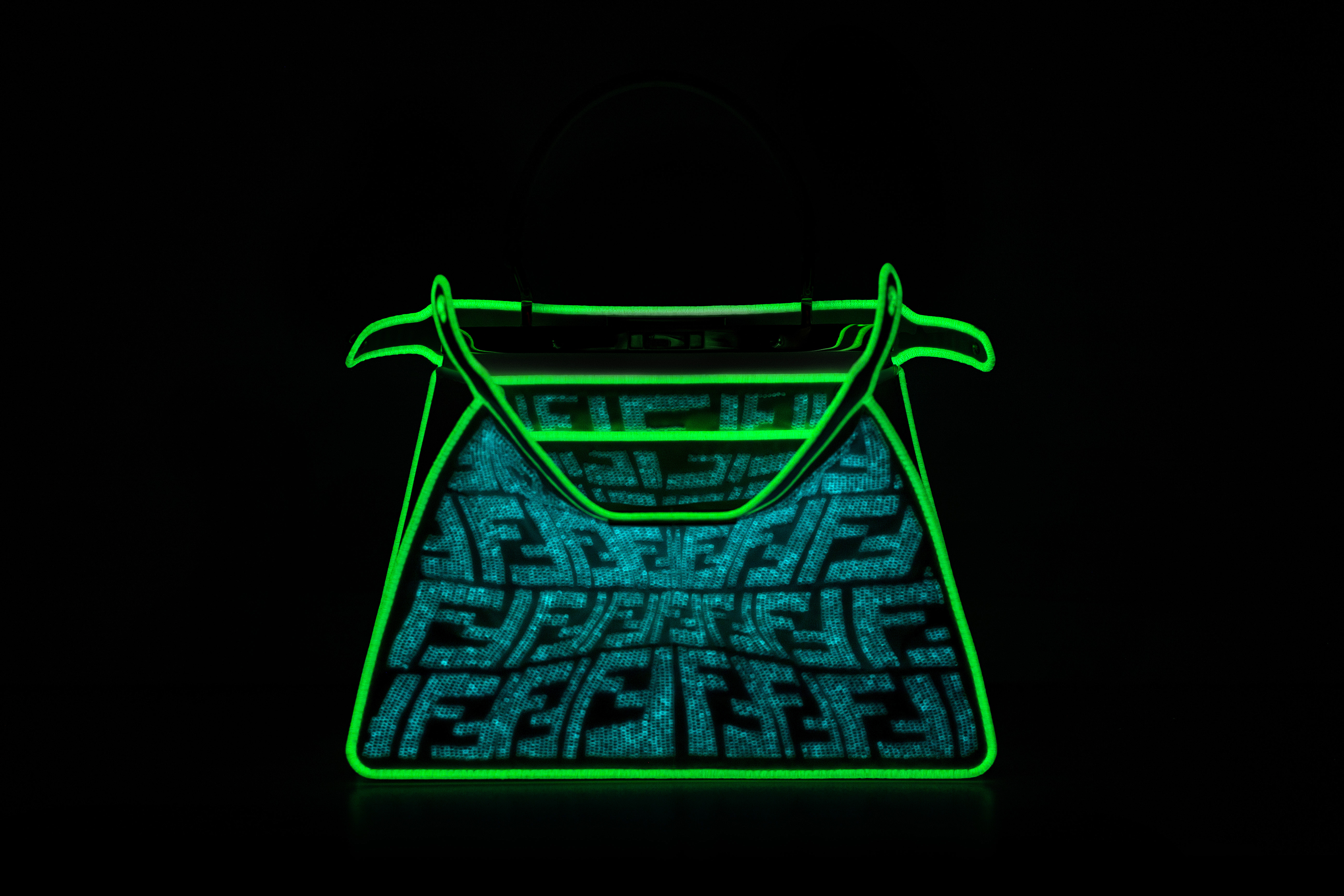
Special edition glow in the dark Fendi Peekabo bag, by Sarah Coleman, for Design/Miami 2020
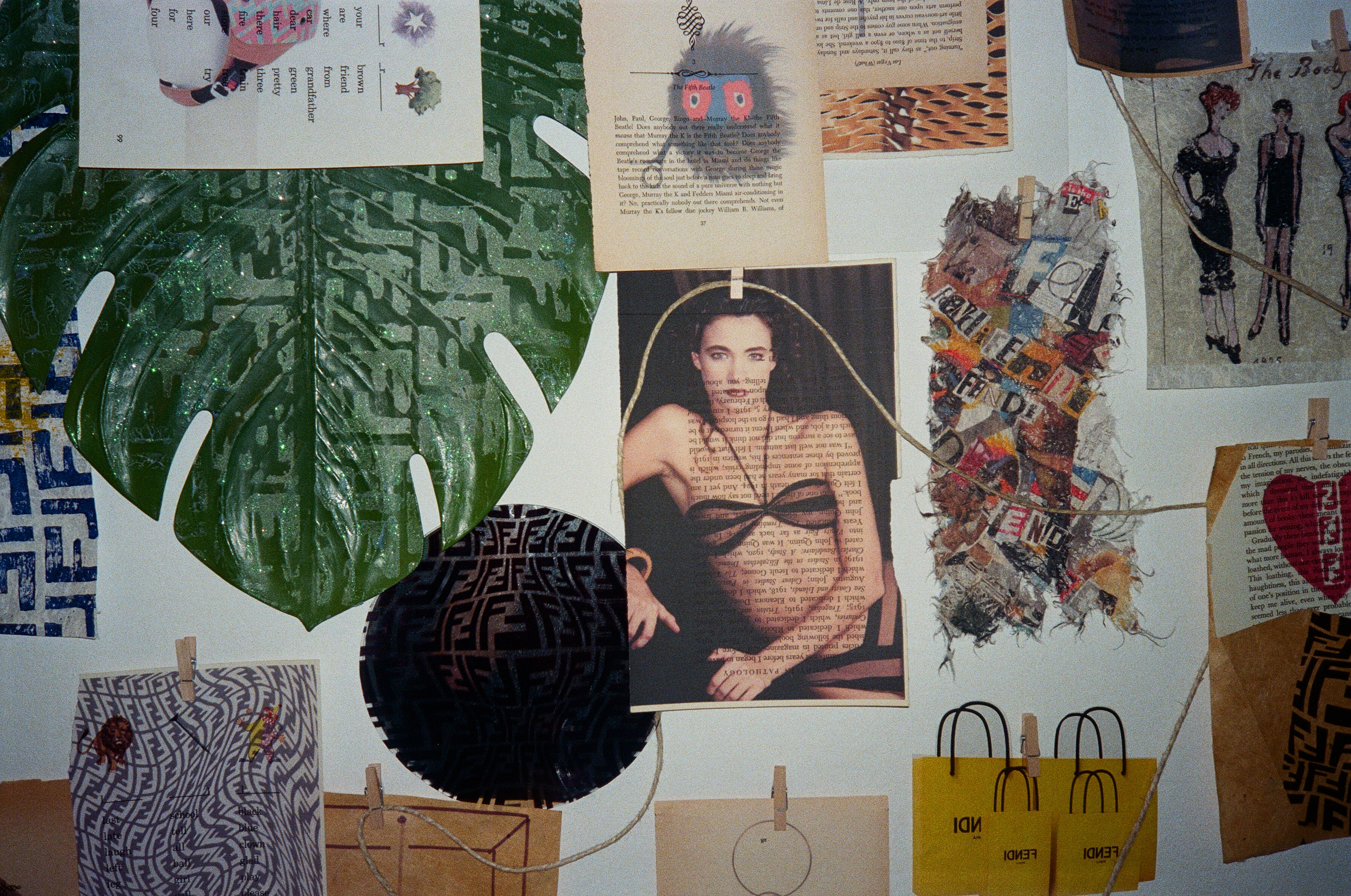
A moodboard in the artist’s New York studio featuring objects and archive imagery from Fendi as well as different tests featuring the Zucca print
INFORMATION
‘Fendi featuring Sarah Coleman’ will be at Fendi’s Design District store to coincide with Design Miami, which runs 27 November-6 December.
Receive our daily digest of inspiration, escapism and design stories from around the world direct to your inbox.
ADDRESS
Fendi
150 NE 40th Street
Miami
Rosa Bertoli was born in Udine, Italy, and now lives in London. Since 2014, she has been the Design Editor of Wallpaper*, where she oversees design content for the print and online editions, as well as special editorial projects. Through her role at Wallpaper*, she has written extensively about all areas of design. Rosa has been speaker and moderator for various design talks and conferences including London Craft Week, Maison & Objet, The Italian Cultural Institute (London), Clippings, Zaha Hadid Design, Kartell and Frieze Art Fair. Rosa has been on judging panels for the Chart Architecture Award, the Dutch Design Awards and the DesignGuild Marks. She has written for numerous English and Italian language publications, and worked as a content and communication consultant for fashion and design brands.